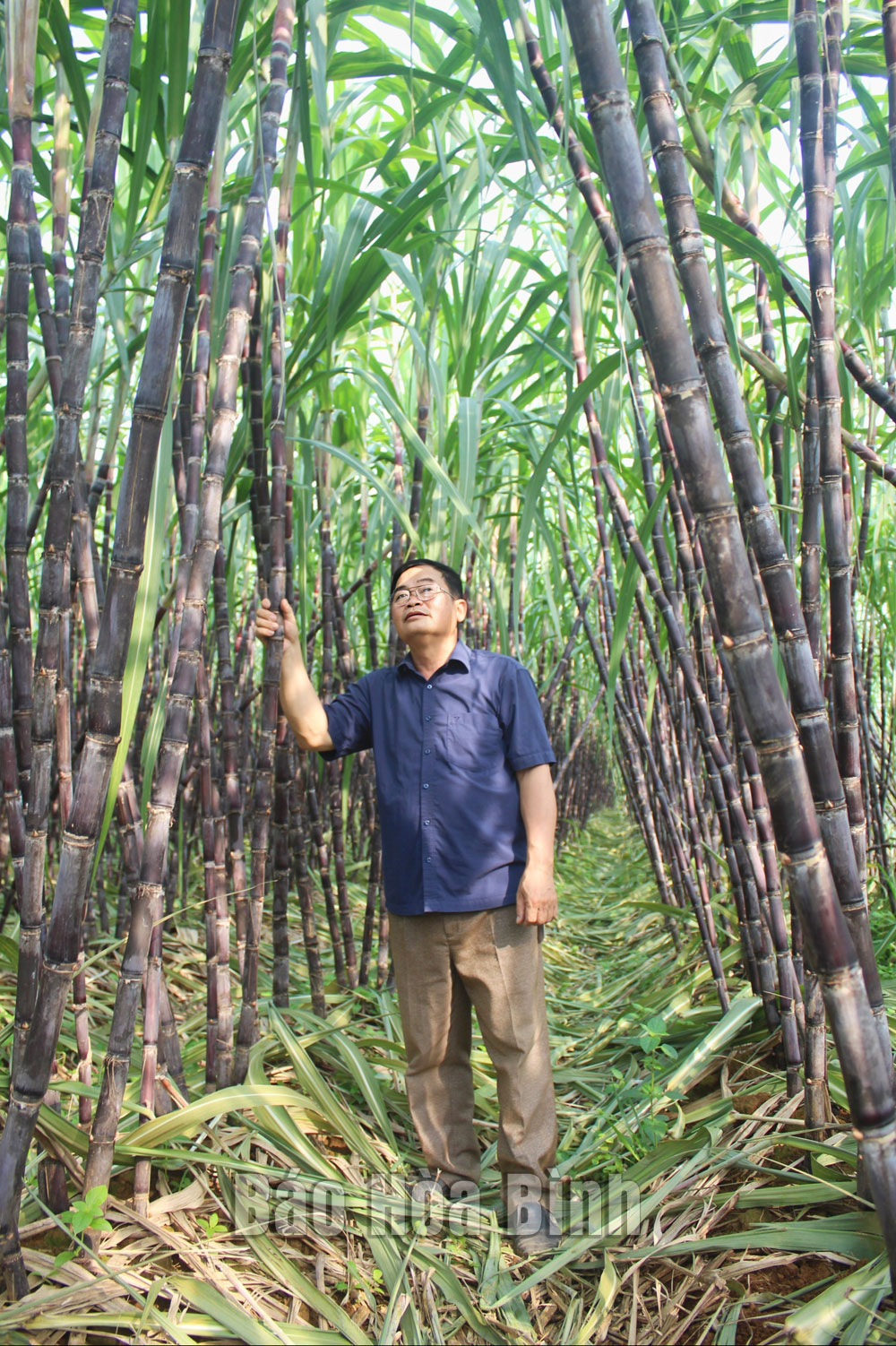
(HBO) – Merchants have placed orders for many sugarcane farms in My Hoa commune in Hoa Binh province's Tan Lac district, with prices ranging from 9,000-10,000 VND a tree, considered high as compared with that over the past years. This is a rosy signal for local sugarcane farmers.
Merchants have placed orders for many sugarcane farms in My Hoa
commune, Tan Lac district, with prices ranging from 9,000-10,000 VND a tree.
Previously, purple sugarcane farming had driven
economic development in My Hoa commune, with the total area amounting to
hundreds of hectares. However, the unstable consumption market has prompted
many households to shift to other crops.
Dinh Long Duong in Chu Bua hamlet is one of the
farmers who have maintained sugarcane cultivation for years. He established
Tung Duong agricultural cooperative in 2019 with 17 members, aiming to maintain
and develop sugarcane farming. With 21 hectares of sugarcane, the cooperative
has helped its members adopt new sugarcane farming methods.
After encountering a range of difficulties in
the two years of COVID-19, the cooperative’s members have begun to earn profits
as each sugarcane tree was sold at a price of 6,000 VND in the last crop.
Duong’s family alone has 5,000 sq.m of sugarcane
farming, which brought about more than 100 million USD in the crop.
Duong said thanks to new farming methods,
sugarcane quality has been improved, adding that deposits have been made for 10
hectares, with prices from 9,000-10,000 VND a tree.
Bui Hoang Long in Don hamlet is one of the first
cooperative member who have sold sugarcane this crop. Long earned nearly 200
million VND from over 1 hectares of sugarcane last year, equivalent to the
money he got after selling half of his sugarcane trees this year.
With the largest area of sugarcane, 1.8
hectares, Bui Van Nhat in Don hamlet expects to earn from 400-500 million VND
this year.
Duong said his cooperative aims to bring
sugarcane to supermarkets and even export the product in the future.
However, it is hard to produce sugarcane that
meets export standards, he said, adding that local farmers hope to receive more
support from agencies to maintain sources of varieties and adopt organic
sugarcane farming methods.
According to the provincial Department of
Agriculture and Rural Development, Hoa Binh has 7,150 hectares of sugarcane,
and the province has shipped 100 tonnes of sugarcane to the EU and the Republic
of Korea (RoK) so far./.
Hoa Binh province is undergoing a dynamic transformation amid Vietnam’s national digital transition. Building on Poliburo’s Resolution No. 57-NQ/TW on breakthroughs in science, technology, innovation, and national digital transformation, the province has rolled out a wide range of practical action plans. A standout initiative is the "Digital Literacy for All” movement, an effort to ensure that no one is left behind in the digital era.
Hoa Binh province is undergoing a dynamic transformation in the wake of the national digital transformation movement. Building on Resolution No. 57-NQ/TW of the Politburo on breakthroughs in science, technology, innovation, and national digital transformation, the province has implemented a wide range of practical action plans. A standout initiative is the "Digital Literacy for All” movement ambitious effort to ensure that no one is left behind in the digital age.
With a spirit of unity and proactive problem-solving, the Party Committee, the government and the people of Dong Lai Commune (Tan Lac District) have made great strides in implementing the resolutions of the 24th Party Congress of the commune for the 2020 - 2025 term. Focusing on leadership and practical actions, the commune has brought the Party’s resolutions into daily life, creating strong impacts and pushing the local development forward.
Amid the nationwide push for digital transformation, young people in Hoa Binh Province are stepping up as dynamic pioneers, applying technology to enhance Youth Union operations and expand the reach of youth-led initiatives. Through creativity and adaptability, Youth Union organizations at all levels have introduced a series of practical solutions, contributing to modern governance and community development.
In recent years, An Nghia commune, located in Lac Son district, has stepped up administrative reform, focusing on improving the quality and efficiency of its single-window service unit for receiving and processing administrative procedures. These improvements have helped create favourable conditions for local residents and organisations to handle administrative procedures, contributing to the commune’s broader socio-economic development.
The Prime Minister-approved master plan to develop the multi-use value of forests ecosystems through 2030, with a vision to 2050, aims to improve the management and sustainable use of forest resources, create jobs, increase incomes, and improve the living standards of ethnic minorities, people in mountainous and remote areas, forest workers and those living near forests.



